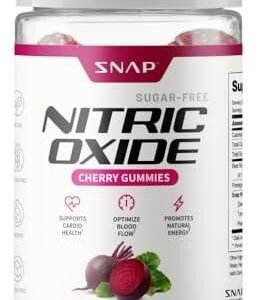Introduction: Unlocking the Secrets to Optimal Muscle Gain
In the realm of fitness, the pursuit of muscle gain stands as a primary goal for many enthusiasts, athletes, and casual gym-goers alike. Yet, despite the accessibility of information in today’s digital age, the path to effective muscle growth remains shrouded in myths, half-truths, and ambiguous advice. For those looking to maximize their potential, it is essential to adopt a structured and informed approach. In this comprehensive guide, we will explore optimal strategies for effective muscle gain, delving into the science of hypertrophy, training methodologies, and nutritional essentials that support muscle development. Whether you’re a seasoned lifter or just beginning your fitness journey, this article will equip you with the knowledge and tools necessary to build muscle efficiently and sustainably. Let’s demystify the process and set you on a path to achieving your goals!
Table of Contents
- Nutrition Fundamentals for Muscle Growth
- Tailoring Your Workout Regimen for Maximum Gains
- The Role of Recovery and Sleep in Muscle Development
- Supplementation Strategies to Enhance Performance and Results
- Closing Remarks
Nutrition Fundamentals for Muscle Growth
Understanding the essential components of nutrition is critical for anyone aiming to enhance muscle mass. A diet rich in macronutrients—primarily proteins, fats, and carbohydrates—plays a pivotal role in muscle recovery and growth. Proteins are especially crucial as they serve as the building blocks of muscle tissue. Aim for a daily protein intake of around 1.6 to 2.2 grams per kilogram of body weight to optimize muscle protein synthesis. Healthy sources of protein include:
- Chicken breast
- Fish (like salmon or tuna)
- Legumes and beans
- Greek yogurt
- Quinoa
Carbohydrates are also essential, as they provide the necessary energy for intense training and recovery. Consider incorporating complex carbohydrates such as whole grains, sweet potatoes, and fruits, which can help maintain stable blood sugar levels and prevent energy crashes. Don’t overlook the importance of fats; sources like avocados, nuts, and olive oil support hormone production, which is vital for muscle gain. To help identify a balanced approach to nutrition, refer to the table below:
| Macronutrient | Recommended Intake | Food Sources |
|---|---|---|
| Protein | 1.6 – 2.2 g/kg body weight | Chicken, fish, legumes |
| Carbohydrates | 50-55% of total calories | Brown rice, oats, fruits |
| Fats | 20-30% of total calories | Nuts, seeds, olive oil |
Tailoring Your Workout Regimen for Maximum Gains
To achieve maximum gains, it’s essential to customize your workout regimen based on your individual goals, fitness level, and body type. Begin by assessing your current physical state and defining specific objectives, such as increasing strength, hypertrophy, or endurance. Consider incorporating a variety of training techniques, including compound movements like squats and deadlifts, which work multiple muscle groups simultaneously, and isolation exercises targeting specific muscles. Here are several strategies to consider:
- Progressive Overload: Gradually increase the weight, reps, or sets in your workouts to continually challenge your muscles.
- Split Training Routine: Divide your workouts into specific muscle groups across the week to allow for focused recovery and growth.
- Active Recovery Days: Schedule lighter activity to promote blood flow and repair without overstressing your body.
Additionally, let’s not overlook the importance of nutrition and rest. Adequate protein intake is crucial for muscle repair and growth, and ensuring you get enough sleep will help your body recover and optimize the gains from your workout. Utilize a simple table to track your weekly progress regarding weight lifted and reps completed:
| Exercise | Week 1 Weight (lbs) | Week 1 Reps | Week 2 Weight (lbs) | Week 2 Reps |
|---|---|---|---|---|
| Bench Press | 150 | 8 | 160 | 6 |
| Squat | 200 | 10 | 210 | 8 |
| Deadlift | 250 | 5 | 260 | 4 |
The Role of Recovery and Sleep in Muscle Development
The journey to muscle development doesn’t end at the gym; it hinges significantly on the often-overlooked aspects of recovery and sleep. After an intense workout, your muscles experience tiny tears that require both time and proper conditions to heal and grow stronger. This recovery phase is where the real magic happens; it is during this time that your body rebuilds muscle fibers, leading to increased strength and size. Active recovery routines, such as light cardiovascular exercises or mobility work, can enhance blood flow, delivering essential nutrients to your muscles. Pairing these activities with adequate nutrition, particularly protein and carbohydrates, maximizes recovery potential.
Equally important is the role of quality sleep in muscle gain. Adequate rest not only fuels your workouts but also stimulates the production of growth hormone, which plays a pivotal role in muscle recovery and growth. Poor sleep can lead to hormonal imbalances, increasing cortisol levels and negatively impacting muscle gain. To optimize your recovery through sleep, consider implementing a consistent sleep schedule and creating a relaxing bedtime routine. Here are some strategies to enhance your sleep quality:
- Reduce screen time at least an hour before bed
- Create a dark, cool sleeping environment
- Incorporate relaxation techniques, such as meditation or deep breathing
- Limit caffeine and heavy meals before sleep
Supplementation Strategies to Enhance Performance and Results
To maximize muscle gain, incorporating the right supplements can play a crucial role in complementing your training and nutrition efforts. It’s essential to focus on supplements that have been shown to enhance performance and recovery. Some of the most effective options include:
- Creatine: Known for its ability to improve strength and power output, creatine facilitates quicker recovery times and enhances muscle growth.
- Protein Powder: Adding a high-quality protein source post-workout can aid in muscle repair and growth, helping you meet daily protein goals.
- BCAAs (Branched-Chain Amino Acids): These can reduce muscle soreness and fatigue, allowing you to train harder and more frequently.
- Beta-Alanine: This supplement helps delay muscle fatigue during high-intensity workouts, enabling you to push through tough training sessions.
It’s important to remember that while supplements can provide additional support, they should not replace a well-rounded diet. Monitoring your overall caloric and macronutrient intake is essential to achieving your muscle gain goals. Consider using a table to track your supplementation timing and nutrient intake for optimal results.
| Supplement | Timing | Purpose |
|---|---|---|
| Creatine | Post-Workout | Strength and Power Boost |
| Protein Powder | Post-Workout | Muscle Recovery |
| BCAAs | During Workout | Reduce Fatigue |
| Beta-Alanine | Pre-Workout | Delay Muscle Fatigue |
Closing Remarks
achieving optimal muscle gain is a multifaceted endeavor that requires a blend of strategic planning, disciplined execution, and ongoing education. By implementing the strategies outlined in this guide—from tailoring your workout regimen and prioritizing nutrition to enabling adequate recovery and tracking your progress—you can create a sustainable path toward reaching your fitness goals.
Remember, there’s no one-size-fits-all approach to muscle gain; it’s essential to listen to your body, adapt your methods as needed, and stay informed about the latest research and trends in the fitness world. Consistency is key, and with the right mindset, you can transform your efforts into meaningful results.
As you embark on this journey, keep in mind that building muscle is as much about resilience as it is about routine. Embrace the challenges and celebrate your successes along the way. Here’s to your strength—both physical and mental—as you strive for excellence in your muscle gain journey. Stay motivated, stay disciplined, and enjoy the process!





